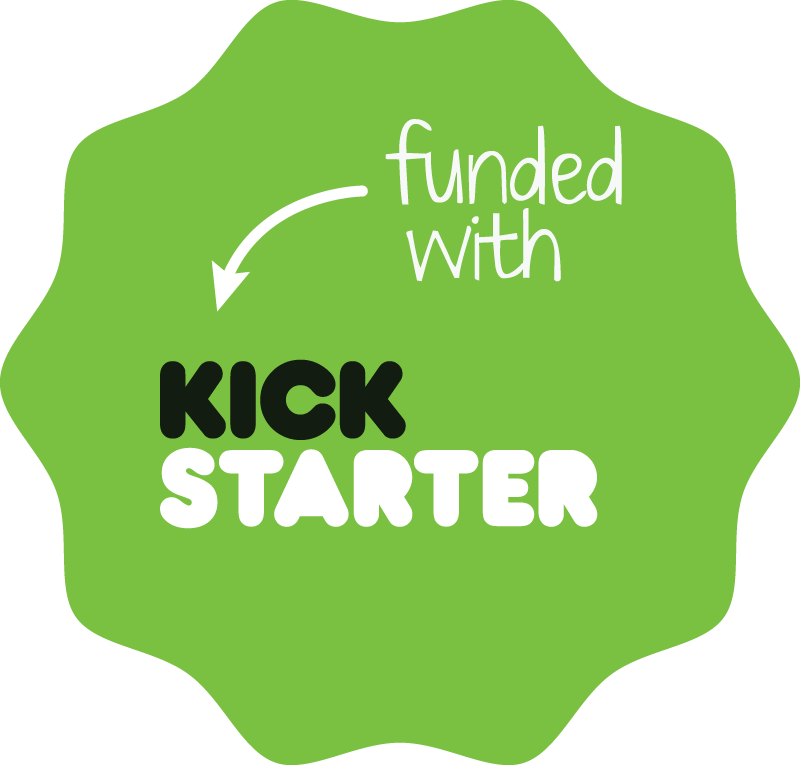Unless you’ve been living in a cave. Most people have heard about the wonders of Kickstarter and how it has helped launched many successful projects into the market. From video games to gadgets to novels, Kickstarter has been the starting platform for many a project. I’m no psychic, but I’m going to guess that most of you have considered crowd funding your next project.
How do I know? Well I’ve thought about it too. In fact, I’ve thought about it so much that I’m surprised I haven’t done it.
So why haven’t I?
I feel a little silly wasting a blog post on this but I know this is important for those of you considering the self-pub route. First, a disclaimer. I have not published anything through Kickstarter and have not launched any products through any crowd-sourced platform. The knowledge I am going to share with you is personal experience in researching the crap out of Kickstarter and similar websites. It is through all the research I’ve done that I decided not to kickstart my project.
Here’s why:
1.) Kickstarter is not just “Hey you, gimme money so I can finish this book.” To start a Kickstarter means that if you want to get funded, you need to provide incentives. For one dollar you get your name printed in the book as a thank you. For ten dollars you get a digital copy. For twenty dollars you get a physical copy. The list goes on and on.
Once you set those rewards you need to deliver them to the people. If you are giving out tangible items, guess what? That means you need to take into account how much its going to cost to SHIP these things. Shipping a package within the U.S. is much different than shipping a package internationally. It’s freaking expensive! You are responsible for going to the post office, buying or acquiring packaging materials, and then shipping out all of those goodies across the world.
Essentially, you’re signing up for a part time job as a packaging and distribution company. Let’s say you don’t want to offer physical rewards, what happens then? Well, if you don’t have rewards that people might want. You my friend, might not get funded. Dun, dun, dun! If you do get funded and do have rewards, remember that you will have to keep track of every person that paid for your reward. They need to get it on-time and must also be reimbursed if the package gets lost in the mail, which is a LOSS for you.
2.) If you want to raise $1,000 dollars for your project, you actually need to raise more like $1,500. I don’t remember the exact percentages but kickstarter and credit card companies will take anywhere from 3-5% of your total funds. This means that you need to set higher reward goals in order to hit that budget you’re looking for.
You don’t want to promise an editor a $1,000 dollar pay day, kickstart it, and then discover that you only have $800 after fees. Who do you think is going to foot the bill after you’ve successfully raised funds?
Hint: It’s not the backers.
If for some reason you’re one of the lucky ones that hit stretch goal territory. Congratulations, I hope you bought plenty of duct tape to ship out all those packages. In my opinion, stretch goals will inevitably take away from the most important part of your project. Writing.
3.) Starting a kickstarter also means that you need to spam and beg your way to get funded. Not exactly my cup of tea. I’m a little too prideful to want to beg for money. Think of your crowd funding from the audience perspective. “Hey! I’m a nobody trying to raise money for a project you might not care about. Give me some cash so that I could do it.” This is the same thing a homeless person says to me everyday in New York City and I always ignore them in response.
Using my hard earned paychecks to pay for my book publishing and marketing materials made everything a million times harder, yes. But at the end of the day I could hold my head up high and say that I brought these books to life out of my own blood, sweat, and tears. I had no obligation to anyone but myself to birth these damn novels into existence. How much money did the 1st book cost me? Well, I eventually ended up spending over $10,000. It wasn’t all at once but it was definitely a challenge to overcome.
4.) Kickstarter is a lot of extra work that takes away from the creative part of the process. If you get successfully funded you are now beholden to the people that have given you the money to launch your product. There is no turning back, no do overs, no “I’m not going to finish this book anymore.” Once someone has given you their money, they own you. If you don’t deliver on that product, you will open yourself to years of torture and angry harassment from the people whose money you’ve stolen.
Yes, stolen. If you get paid to create a book and don’t deliver on that or run away with the money, then you are a thief. Quite frankly, if you’ve never written a book before, I don’t recommend doing a Kickstarter. Only do it if you have a fully completed manuscript that simply needs editing and artwork. If you’ve not even finished a rough draft, then you shouldn’t even be thinking about crowd-funding. Your job is to get that book done first.
Now that you’re armed with this new knowledge what are you going to do with it? Are you going to crowd fund, pay out of your pocket, or look for an agent to pitch you to publishing companies? No matter what route you take, all of them will be hard. You still have to do work even if a traditional publisher decides to pick you up.
None of this creative process is ever easy.
My advice to you is to pick the route you think you can handle and go from there.
Good luck and may the force be with you. (And also with you)





